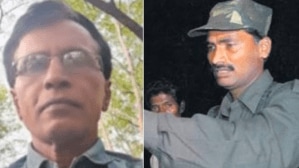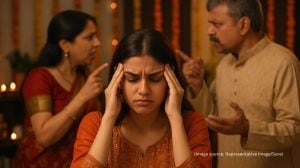Shivnath didn’t have style but he had substance and soul
I first met Shivnath Singh at Patiala in 1973 during the trials for the inaugural Asian Track and Field Championship at Manila. We, a bunch ...

I first met Shivnath Singh at Patiala in 1973 during the trials for the inaugural Asian Track and Field Championship at Manila. We, a bunch of young middle-distance runners from Delhi who had come to watch, were amused by his rather awkward running style. Very low hand carriage, extremely stiff mid-body and short and shuffling stride, barely lifting his feet.
It was everything a long-distance coach would not teach his trainee. But what any coach would have been proud of was the courage and will that Shivnath possessed in abundance. This iron will helped him overcome his unorthodox running style and become one of the greatest Indian long-distance runners.
Typically, Shivnath retained that will even when his life was slipping away. Lying in bed at his humble house in Jamshedpur, he was giving running tips to some young Tisco athletes who had gone to see him. ‘‘I was there with my trainees in the evening; he spoke of his running days and all the time he advised the athletes to work hard and respect their coach’’, recalls Basant Singh, a former hurdler and now a coach with Tisco. ‘‘I was woken up at about 4:30 next morning when Shivnath was being taken to the hospital; he died within 15 minutes of reaching there.’’
One of those rare moments when Shivnath failed to fight his adversary.
But let’s recall happier memories. Before leaving for the Montreal Olympics he spent about two weeks in Delhi. We accompanied him on his evening training spins. On one such occasion we clung on to him for about 15 km, much to his surprise. If only he knew our physical state. He broke away from us near Teen Murti and sprinted to the National Stadium. He was at hand to clap for us when we walked — crawled — back. He complimented us for our effort and, in return, promised to do well at Montreal.
He did well. During the Marathon Shivnath was still in the leading pack at the 30-km mark when an official jet-sprayed water over him, which he was not used to. He found running difficult in soggy cotton clothes and trailed back to the 11th position. However he had the satisfaction of beating some of the top runners — Ethiopian Mamo Wolde, American Ken Moor and Bill Rogers and Englishman Ron Hill.
Known to his friends as Babbua, Pappu (native Bihari terms of endearment) and even Jalebi after the sweet he was partial to, Shivnath was instrumental in raising the standard of Indian long-distance running. In every race on the track he fought his traditional rival Hari Chand till the end. But he wasn’t blessed with good basic speed and almost always lost at the tape.
However, the duel between these two giants were a treat to watch and had a positive fallout. In their trail several middle and long-distance runners, including Mohan Singh, Swarup Singh and Pyara Singh, improved beyond their imagination, making the 1970s the golden age of Indian long-distance running. Indeed, distance running became a fashion and spawned Gopal Saini, Gurmail Singh and Rajkumar.
This streak of defeats against Hari Chand motivated Shivnath to shift to the marathon, where he could overcome his lack of speed by developing greater stamina to run down the opposition. And he did it too. Hari Chand, a lion-hearted fighter, also secretly nurtured a marathon ambition. In fact he did try the event in minor competitions and did well. But somewhere in his mind there was a fear of being beaten by Shivnath and he didn’t carry on with it. Perhaps if he had, Indian marathoners would have been on the world map.
Shivnath lived for running and did India proud. But in his death he did not get his due. Even the media did not treat his death as the passing away of a giant. One national daily summed up the news in a brief item while another used Hari Chand’s picture with the story — disrespect to both men. For the electronic media, Shivnath belonged to the analogue era and therefore no news in this digital age.
The political masters, the sports minister and socialites waste no time in talking note when Tendulkar sneezes or Ganguly has a stomach ache or when Dravid decides to tie the knot. Today, they all are silent at the passing away of an Olympian.






- 01
- 02
- 03
- 04
- 05

























